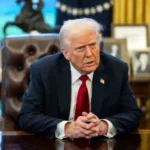Key Points
- TSMC has alerted the U.S. government about Huawei’s potential effort to circumvent AI chip export restrictions.
- In 2020, the U.S. restricted the export of AI chips to China to limit the Chinese military’s access to advanced technologies.
- TSMC confirmed it hasn’t supplied chips to Huawei since mid-September 2020 and is not under investigation.
- The alert came after a customer ordered a chip similar to Huawei’s Ascend 910B, raising concerns about export control violations.
Taiwan Semiconductor Manufacturing Company (TSMC) has alerted U.S. authorities about a potential attempt by Huawei to circumvent export restrictions that prevent producing high-end artificial intelligence (AI) chips for the Chinese tech giant. TSMC, the world’s largest contract chipmaker, stated that it has not supplied chips to Huawei since September 2020 following U.S. sanctions. The company also clarified that it is not currently the subject of any investigation.
The U.S. government imposed stringent export controls on advanced AI chip technologies in China in 2020, citing concerns over the Chinese military’s access to these technologies. A key component of these restrictions prohibits global chipmakers like TSMC from using U.S.-origin technology or equipment to manufacture chips for Huawei or its associated products.
TSMC’s warning comes after a customer placed an order for a chip similar to Huawei’s Ascend 910B, a processor designed for training large language models, according to a report by the Financial Times. It prompted TSMC to inform the U.S. Commerce Department about the potential breach, as the chip could fall under the category of restricted technologies.
This development highlights the intensifying technology rivalry between the United States and China, particularly as Washington seeks to limit Beijing’s access to cutting-edge semiconductor technologies. Huawei has been a focal point in this battle. U.S. sanctions have effectively blocked the company from accessing advanced chips and design tools, hampering its ability to compete in AI and 5G markets.
The U.S. Commerce Department oversees export controls, and Huawei has yet to respond to requests for comment on the issue. Meanwhile, TSMC’s U.S.-listed shares fell by 1.5% following the news.
The situation reflects the broader geopolitical tensions between the U.S. and China, as both nations vie for supremacy in the technology sector. The United States has expanded its use of export controls in recent years, targeting key Chinese companies like Huawei to impede their access to advanced semiconductors.




